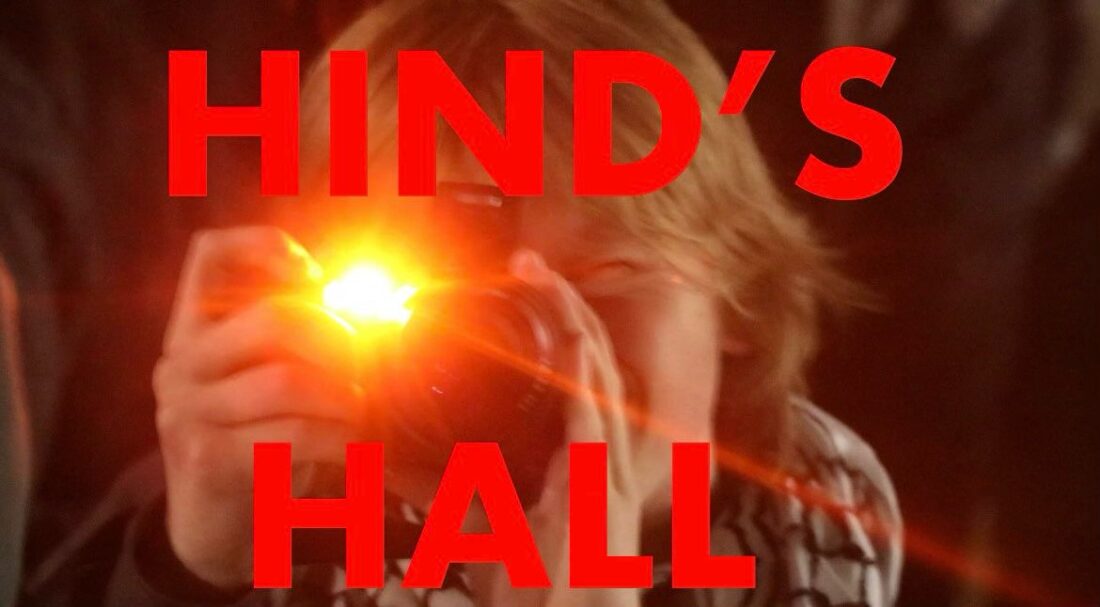The Columbia Review: I mean, it’s a little unconventional to do the interview post-Q&A, but I don’t think this film is at all conventional. But, I guess, just from a starting point, what motivated you to make this film? Could you talk a little more about the initial purpose of the archival research? And what kind of brought you to producing this?
Atish Saha: I’m a filmmaker, so I’m always making a film and I found this collaborator, so we constantly filmed it. But the way I saw campus is that we always collectively forget stuff. The other day, I was talking about a student that was sexually abused on campus and she carried this mattress across the university to get the university to take the case seriously. So our film is a performance piece as such. We’re taking this film from place to place in order to reignite the memories — and that’s what people have been telling us, that it has felt like they’re revisiting [that memory].
Junnie: Last year I remember walking around on campus and everything was just so present, from the access to get involved to just seeing conversations about Palestine and centering that in our lives. But as time has gone on, I think there hasn’t been as much remembrance in that sense, so [this is] a way of reminding people of what has happened.
TCR: Definitely, I think even just as a historical document, this is immensely beneficial. So, I guess my next question was going to be: you’ve both screened this film now over 35 times, I think this is the 38th, and so for that reason, each time, it’s slightly changed. I wanted to ask from a directorial point of view, was this an intentional choice? Insofar as in light of student activism and resistance to power that you’ve chosen to resist the prescriptions and boundaries of film as a medium?
Atish Saha: So, the operating mindset of this film is not really coming from that of a filmmaker, because as a filmmaker the kind of story that I want to tell would have a little less trauma. Even to experience this footage with other people 38 times, it’s like we [Atish Saha and Junnie] are the only two common people that have been at each one — everyone else changes. But then, imagine us sitting through this footage, hours of footage, again and again. How we are coping with it is this film.
TCR: Sure, in terms of the choice of this film being a constantly evolving piece, how does that reflect notions of protest and resistance?
Atish Saha: There is a great line that I recently read that goes: “’Stop and reflect,’ but during genocide you really don’t have the luxury to reflect.” Film is ever so a tradition of reflection. Right now, we have the audacity to reflect because there is an absence in the movement space on campus, where the actions are very limited because of the repression of Columbia University — people are suspended and whatnot. There is no reason for us to sit on this footage and years later create a historical document. Rather, we can use it as a movement apparatus. So this is more of an act of activism than a film.
TCR: So you reject the distinction entirely? Between making a creative piece and a politically engaged one?
Atish Saha: Yes. Because it is so creative, but also at the same time, if you put together a creative outfit today, like everyday, or you put your food on your plate in a certain way, it’s all curation. So, even though it’s through the medium of film, we did so much curation and art. But that’s just how life works, [curation] is not our main intention.
TCR: One last question, do you have any future projects planned? I know that you said you imagined this film reaching a point of completion by April 30th, but I wonder are there any other films that you’re working on that you’re excited about and would like to share?
Atish Saha: We’re actually going to make a film, [centering] the future of movements and students from our campuses. We would want to be able to see and research and be more equipped in the same manner that we were equipped [in the making of “Hind’s Hall”] in our new documentary about the student movement from 1968. So that’s a feature-length film that we are making.
TCR: Thank you so much for your time!

